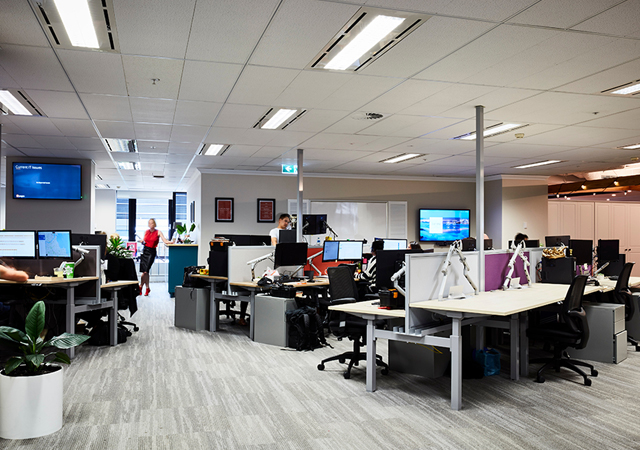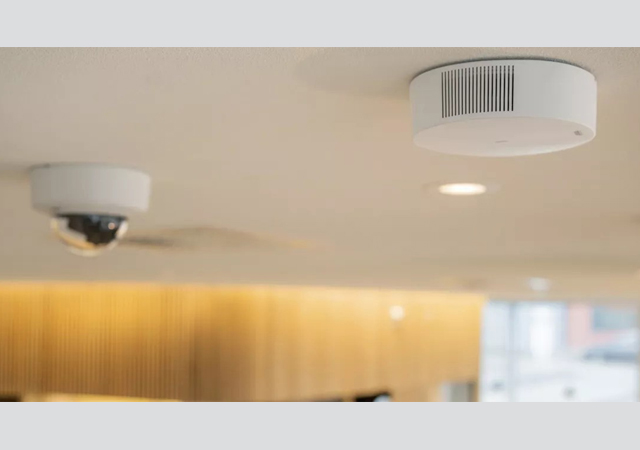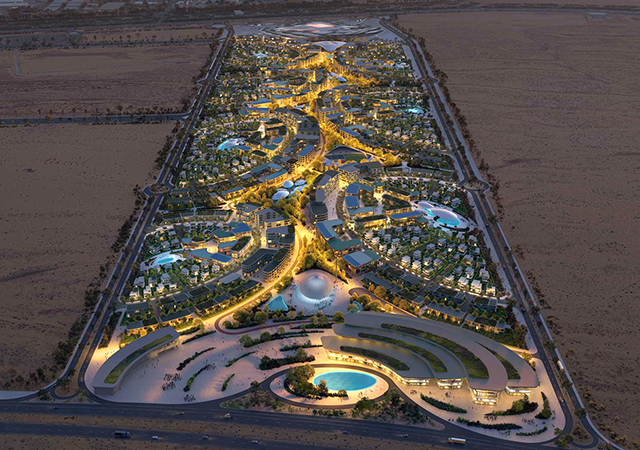
 The building is completely made of composite panels.
The building is completely made of composite panels.
The Middle East’s first building built without concrete, wood or steel, is nearing completion on Abu Dhabi’s Al Reem Island.
Built with sandwich panels made of composite materials that are used to make the new-generation aircraft – including Boeing 787 and Airbus A350 – the project will be the new corporate office of Tameer Holding, a leading real estate company developing a $1.9 billion complex on Al Reem Island.
The revolutionary building technology, which ensures faster and cost-saving construction, has been brought to the region by InnoVida Group in association with the UAE-based Al-Safeer Group.
Recently, InnoVida – a multinational US company with operations in Germany, the Middle East, Africa, Central and South America – came to the global limelight when a 45-ft pyramid, made of InnoVida panels, was installed at UK’s Hyde Park by the acclaimed pop artist Romero Britto.
“The technology will have a far-reaching impact on the booming construction industry by reducing its dependence on cement, wood, steel and labour while ensuring speedy environment-friendly construction,” says Dr Abdallah Shaaban, chief executive officer of Tameer Abu Dhabi. “We hope our building on Al Reem Island will be the first such structure to inspire other builders to adapt this technology which will go a long way in saving energy and construction time.”
InnoVida panels, made of proprietary synthetic composite materials, allow superior thermal and sound insulation, said Caludio Osorio, chairman and CEO of InnoVida. “The technology ensures cost and time-efficient housing solutions,” he says.
“InnoVida panels are used with ‘InnoVidaResin’ to facilitate construction without the use of heavy equipment while InnoVidaBond materials are used to fuse together panels into a mono-block to make the buildings waterproof. By using this technology, structures – homes, buildings, offices and warehouses – can be erected without a foundation, column or roof structure,” Osorio says.
In the US and other markets, InnoVida’s panels are being increasingly recognised as a better alternative to traditional construction materials because they are stronger – the panels can take a load of 1 tonne horizontally and 5 tonnes vertically. They are lighter and more flexible than cement, steel or bricks. InnoVida’s panels are also non-flammable, waterproof and hurricane resistant (up to 300 kph).
“InnoVida panels’ insulation allows for better preservation of room temperatures, ensuring energy saving of up to 70 per cent during summer days,” Osorio says.
“InnoVida, in joint venture with Al Safeer Group, plans to open panel production factories in the UAE and India.






.jpg)









.jpg)




































.jpg)








